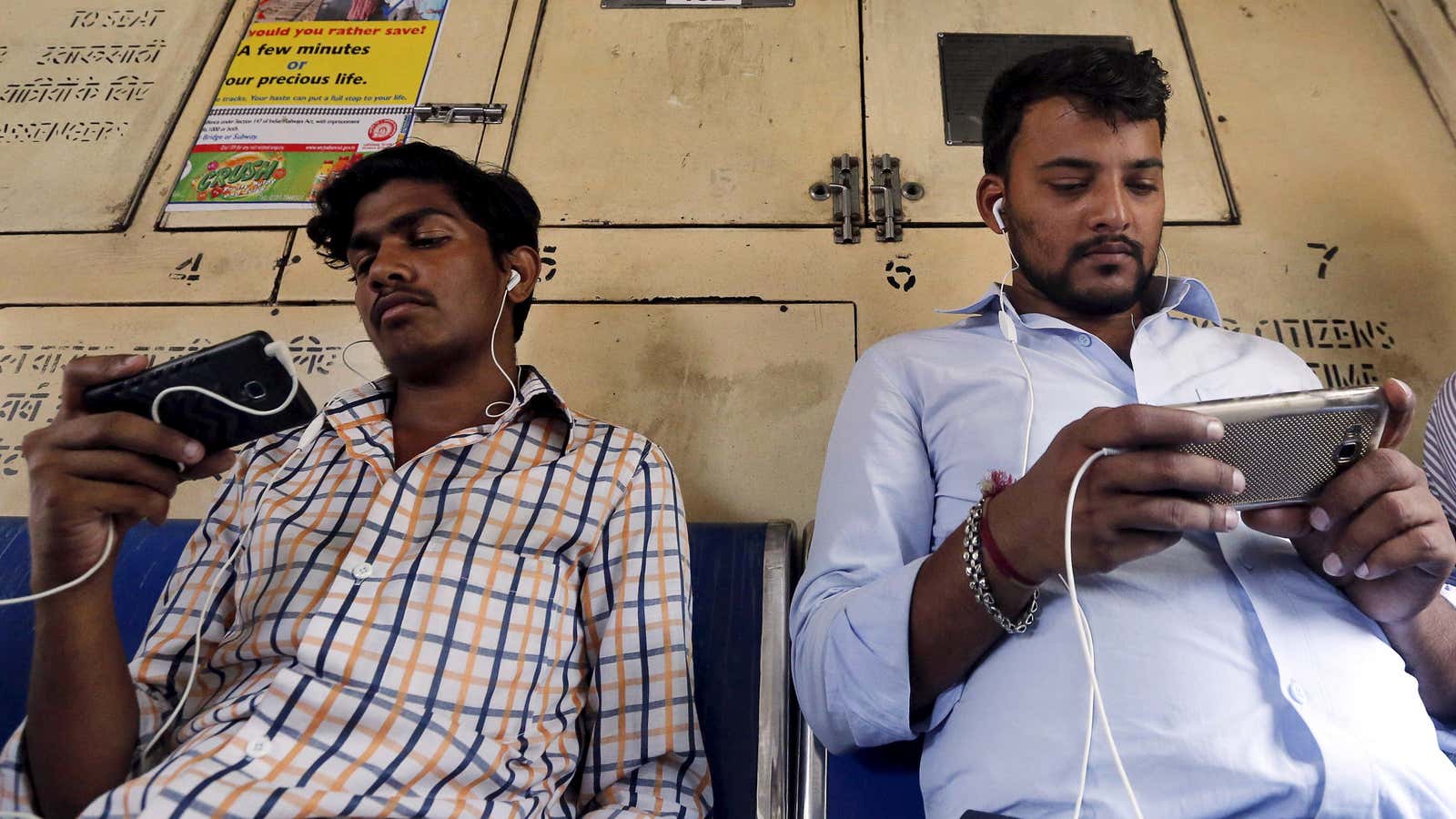As governments around the world increasingly adopt the tactic of shutting down electronic communications to limit political disruption or simply control citizens, they are costing their economies dear.
Some 81 state-ordered shutdowns of some or all electronic communication in 19 countries over the past year led to $2.4 billion in lost economic production, according to a new estimate from Darrell West of the Brookings Institution.
The accounting, taken for the year to June 30, 2016, estimates the loss to GDP based on how much of a country’s economy depends on digital services (which is very low in North Korea, for example, where few people have access to the public internet). If anything, it is a conservative measure because it does not include losses in tax revenue, productivity, or investor confidence.
The countries most affected? India, accounting for $968 million in lost output; Saudi Arabia, with $465 million; and Morocco, with a loss of $320 million. Most of these shutdowns weren’t related to civil strife.
India joined a number of countries—including Uganda, Algeria, and Iraq—in shutting off internet service during school exam periods to deter cheating. To keep students honest, India imposed a ban from 9am to 1pm in certain areas.
In Saudi Arabia and Morocco, the shutdowns stem from crony capitalism. In both countries, officials terminated access to apps with free voice-over-IP calling services like WhatsApp and Facebook Messenger, reportedly because they were siphoning revenues from the country’s telecom firms.
State disruptions of electronic communication are becoming more common, and states have developed sophisticated methods that leverage the physical infrastructure of the internet to control the information their citizens can access.
“Certainly an Egypt-style pull-the-plug-on-everything kind of thing, I would say prior to this year, that’s still a really rare event,” Doug Madory, director of internet analysis at Dyn, told Quartz. During the height of the Arab Spring in 2011, Egypt effectively blocked all access to the internet and mobile networks.
But now countries—even relatively open ones—are regularly deploying such tactics for prosaic purposes, like the exam-week deterrence. Sophisticated tools for targeting specific apps or regional networks are giving regimes more flexibility to disrupt services. In the period of the Brookings study, there were 20 days where states blacked out the internet nationwide, but 363 days where regional areas were switched off.
Within many governments disposed to disrupting the internet, Madory says there are people, often in technical roles, who argue against state interventions in communications networks. Analysis of the costs associated with disruptions may be more useful for them than arguments based on civil liberties, which don’t get much traction with illiberal governments.
“Even if you don’t care about human rights, there’s an impact to turning your internet off,” Madory says.
